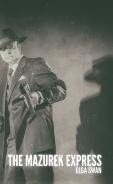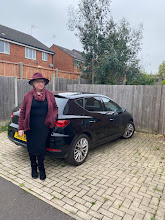Authors always say ‘write about what you know.’ It’s called witting testimony - recounting from actual, real-life events and memories, rather than research materials. But, when I watch today’s TV programmes set in times that I grew up in, I instantly spot the errors. It’s all too obvious when scriptwriters are too young to know the language and mindsets of ordinary people in the period they’re trying to reconstruct. I was watching the TV comedy Funny Lady, starring Gemma Atherton. As soon as I saw it was set in the 1960s, I knew they’d get things wrong. Great attention was paid to things like typewriters, cars, and furniture, but the language used was wrong. When I worked in a foundry in the 60s, amongst working class men, I never heard the F word, nor open talk about intimate things, yet Funny Lady was riddled with it as standard. And, although the background music was correct, they failed to show that there was a big divide in the 60s between what the teenagers and older people listened to. And in Call The Midwife, set in a similar time period, why does one of the lead nurses wear so much make-up? In the 60s, a woman looking like that would have been labelled a tart! Similarly on today’s book covers set in that era. Research sources, unfortunately, rarely include witting testimony - vital for true life realism. They should’ve asked me!
Subscribe to:
Post Comments (Atom)


















No comments:
Post a Comment